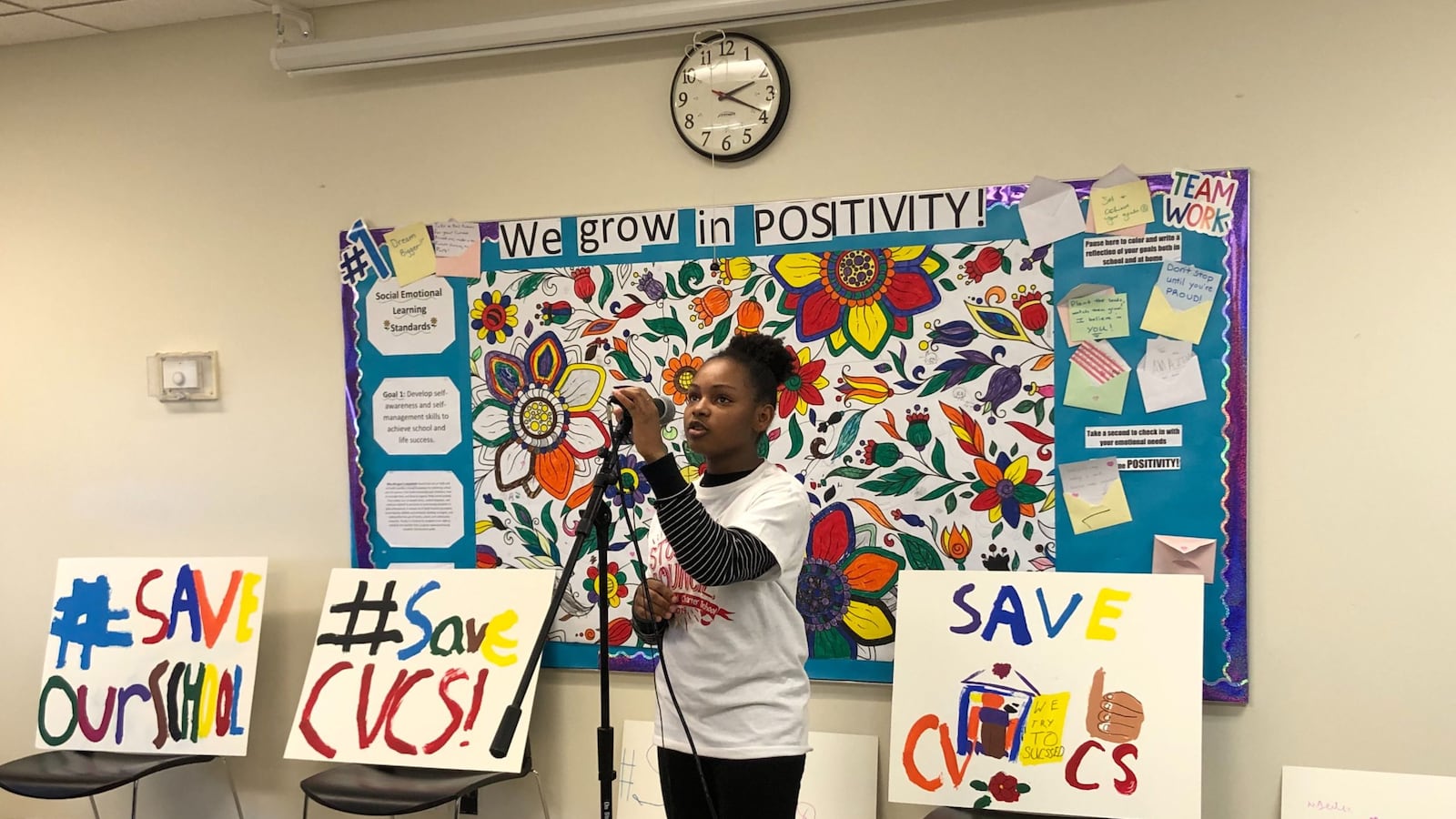For the first time in nearly a decade, the Illinois Board of Education will have to take on the controversial decision of deciding whether or not to save charter schools that districts want to close.
The board will face its first round of decisions on March 17. At stake is the fate of two Chicago charters.
Until recently, charter schools that were at risk of closure could appeal to the state Charter Commission, which for eight years had the last word on the fate of charter schools.
But now that’s not the case. Last summer, Gov. J.B. Pritzker signed a bill to abolish the commission and to transfer to the state board the responsibility for hearing appeals of charters facing closure by their local school districts.
Next month board members will weigh whether to save two Chicago schools, Chicago Virtual Charter School and Frazier Preparatory Academy, and make the state Board of Education the schools’ new authorizer.
The state board’s new power reshapes the education landscape to a less friendly environment for charters rejected by their home district. Unlike the charter commission, whose members were mostly appointed by previous governor Bruce Rauner, the state board is appointed by the current governor, a critic of charter schools.
Charter advocates said it’s not clear how the state board will rule.
They believe that the work of considering whether to keep a school open by becoming an authorizer — a job involving school oversight — is complicated, and is best performed by an agency that focuses primarily on charter appeals and authorizations.
“A single-purpose authorizer tends to develop expertise in the area of charter authorizing, but a state board like ISBE [the Illinois State Board of Education] has so many other things they do,” said Andrew Broy, president of the Illinois Network of Charter Schools. “They have to figure out how to develop expertise to do it well.”
For now, the state board will only hear appeals of schools facing closure or having their charter revoked. But on July 1, it will also take over as the charter holder for 11 schools currently overseen by the state charter commission.
The state board has hired Jennifer Saba, previously of the Chicago Public Schools charter office, to head a new department that will oversee the schools. The agency is also meeting monthly with staff from the charter commission to develop tools for monitoring the schools it will oversee.
The state is still working out details of the transition and is offering public comment on some proposed changes to the state charter school code. That means the rules for appeals could still shift.
The two Chicago schools facing closure are making the case for their schools to board hearing officers, who will make recommendations to the board.
Views differ on Chicago Virtual Charter School, which offers mostly online schooling for grades K-12.
Parent Jessica Torres said the school offered a quality online education. When she had hip surgery and couldn’t walk her son to school, the school enabled her son to continue his education without placing a physical strain on her. “It gave us flexibility,” Torres said. Her son is now in eighth grade. “I love the program.”
But Taniyah Wilson, a senior at the school, argued for closure, even though she spent four years at the school.
“This is not the best place for you to send your kid, especially if you want them to succeed,” she said. “You ask for help; you don’t always get the help. You can email them, but it takes them three weeks to respond to an email.”
At a state board hearing for Frazier Preparatory earlier this month, teachers and families argued that Chicago Public Schools wants to close their North Lawndale school based on ratings that unfairly penalize schools in black and Latino communities.
“Let me tell you what can’t be measured: the mouths that we feed out of our own pockets,” teacher Tanisha Weeks told Block Club Chicago, “the brokenness that we heal out of our hearts.”
The district argued the school has been on academic probation since 2018 and failed to implement its remediation plan. The state’s school ranking system tagged the school as commendable, the middle ranking.
If the state board decides to authorize either of the two schools, the Chicago district would lose the state funds it gets for overseeing the campuses. Instead, that money would go directly to the school and the state board would take over oversight. If the board closes the schools, hundreds of families would have to find new schools. That topic came up at the February board meeting, where board members previewed their new responsibilities handling appeals and authorizing schools.
The charter commission, meanwhile, is continuing business as usual in its final months. The body is visiting campuses to monitor them and is completing annual reviews of the schools it oversees. It also is working on a report looking back over the years of the commission, which will be published in the spring.
“We are still supporting schools, and doing the work we do,” said Shenita Johnson, director of the commission.

